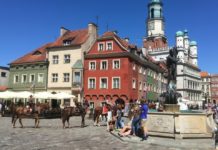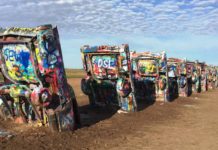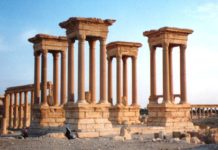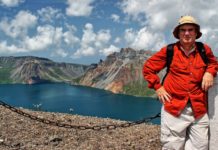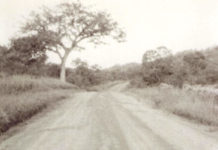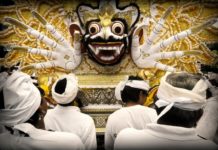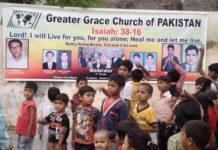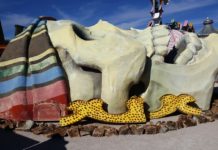CHAPTER 10
Don’t you know there are demons in the desert at night? – African Legend
The full weight of my latest letter from the Selective Service System was still sinking in, and I didn’t want to respond until I had more time to think about it. I was afraid that I might say something I would regret. Instead, I went to the American Express office in Casablanca and had my forwarding address changed to Tunis, Tunisia.
To get to Tunisia by land, I would have to go through Algeria, but I needed a visa. The Algerian embassy in Rabat, the capital of Morocco, was the nearest place to get one. I packed my bag and headed there by train.
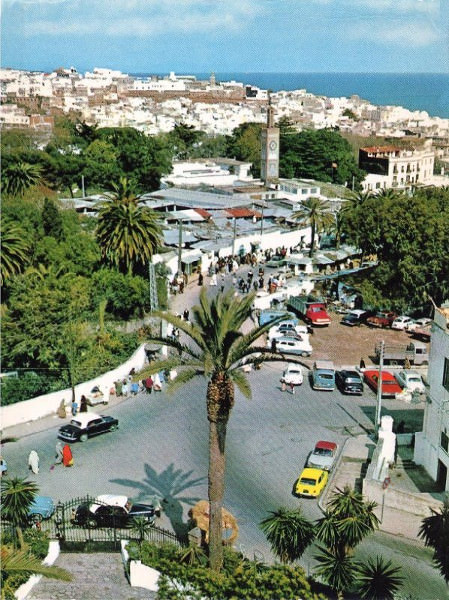
Getting from Casablanca to Rabat didn’t take long, and when I arrived I went straight to the embassy. While waiting in line, I met a guy and girl from Canada. At first, I thought they were a couple, but it turned out that they were a brother and sister from London, Ontario. They were planning to drive from Rabat to Algeria in a small Peugeot they had bought in Europe and shipped to Morocco.
Like most of the Canadians I had met on the road, Philip and Debbie Brennan were friendly and easygoing. Debbie was a cute, petite, blue-eyed blonde, about six months younger than I was. She was a little shy and had a sweet, innocent smile. Philip was tall, had short cropped hair, and appeared studious.
“Unfortunately, while the border police inspected our papers, I did something stupid.”
Philip, a geography teacher, was traveling as part of his work. Debbie had come along for the ride before returning to her own college studies. Since they hadn’t been on the road very long, they were charmed with my travel stories. It felt good to be the one telling the envious tales for a change.
The fact that I left America to avoid being drafted struck a chord with them. They knew that a lot of guys in my situation had fled to Canada and were sympathetic about my predicament. Since we were all getting along well, they invited me to travel with them for a few days, share the expenses, and see what happened after that.
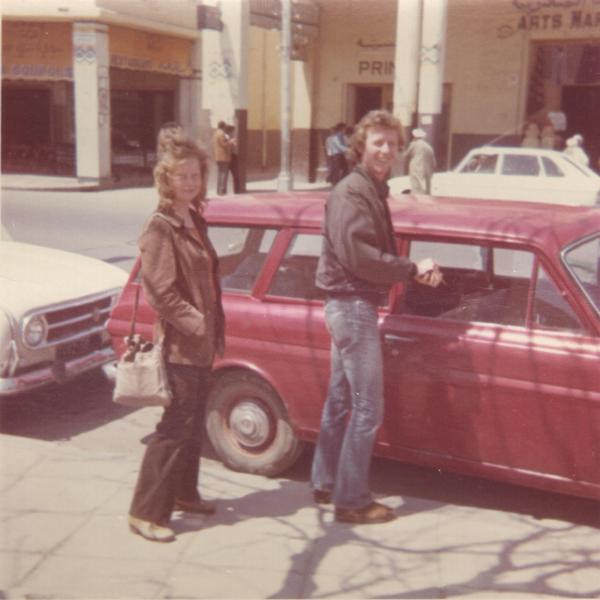
Over the next week, we drove a zigzag route through the back roads of Morocco. In the cities of Meknes and Fez, we saw huge, chaotic open-air markets and fascinating bazaars like the one in Marrakesh.
In Fez, we enjoyed two full days of all-out partying at the festival celebrating the King of Morocco’s birthday. The city was full of colorful public events that carried on until late at night. Next, we drove to Tangier, where we splurged on dinner at a fancy restaurant and enjoyed a spectacular view of the Mediterranean Sea.
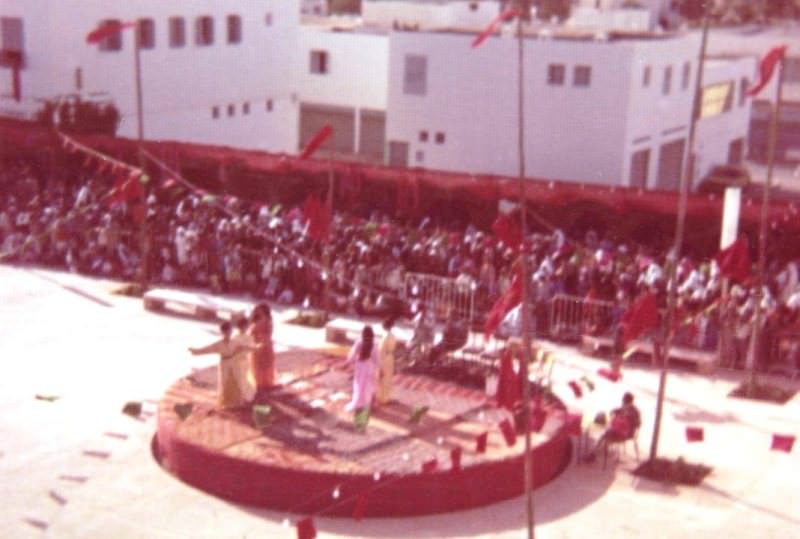
Our time spent traveling together was pleasant, and I would have tried to get closer with Debbie if her brother hadn’t prevented it. We flirted with each other, but Philip made sure that we never got much time alone.
We followed the coastline from Morocco to Algeria and saw stunning views of the ocean along the way. Philip and Debbie were both into learning about the history of the places we passed through. They had guidebooks about the area and often quoted from them.
“The north coast of Africa is called the Barbary Coast,” Philip informed us. “It was named after the Berbers, the ethnic group who lived in Africa before the Arabs.”
The teaching side of him was coming out.
“Barbary pirates roamed these coastal waters for centuries, attacking towns and capturing slaves,” he continued.
When we finally arrived at the border of Algeria, we crossed rather quickly because not many people were leaving Morocco. Unfortunately, while the border police inspected our papers, I did something stupid. I snapped a picture of a sign that I thought said “Welcome to Algeria” in Arabic.
An instant uproar ensued, and several angry officials ran toward the car and demanded my camera. They pointed and shouted at me in French and Arabic, but I couldn’t understand a word they were saying.
Philip and Debbie explained to the police in French what happened, and after a few minutes they calmed down. My friends told the officials that I was not able to give them the actual picture, and there was no need to confiscate my camera. It was just a harmless shot of the sign, and I had not photographed any military personnel, or equipment.
The authorities allowed me to keep my camera, and we were permitted to continue into Algeria. With the border behind us, we laughed about the close call.
“Without warning, large boulders began rolling down the hill toward us.”
For the next several days, we camped alongside the road. On extra cold nights, I slept on top of the car because my sleeping bag was paper thin, and the ground felt like a sheet of ice. Philip and Debbie slept inside the car.
As we drove through Algeria we met a variety of local people in shops and restaurants. Some of them invited us into their homes and fed us lamb, couscous, dates, and other exotic foods I had never tasted before.
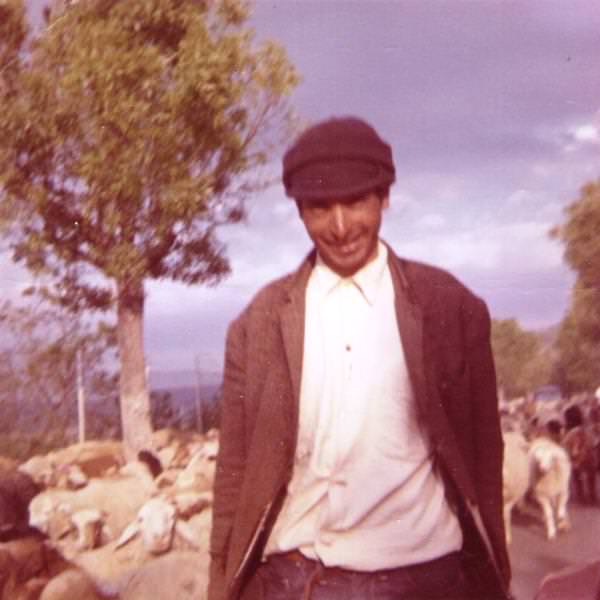
One afternoon, while enjoying a picnic at a scenic spot on the rocky sea coast, we heard a loud rustling in the trees. Without warning, large boulders began rolling down the hill toward us.
We immediately jumped up and went on guard for more stones coming our way. As we peered into the clump of trees, we caught a glimpse of our attackers: a group of monkeys! They acted annoyed at our presence and wanted us to leave. We tried screaming to scare them off. When that failed, Philip and I grabbed a couple of small rocks, threw them in their direction, and prepared for combat.
A loud chatter and commotion came from the trees, and then it quieted down. The three of us breathed a sigh of relief and finished our lunch. Philip later read in his book that our confrontation had been with Barbary macaques, a species of tailless monkeys who are known for their pesky antics.
After two weeks of driving and camping, we arrived in Algiers, the capital of Algeria. Philip and Debbie planned to go sightseeing; I needed to get a visa for Tunisia and write a letter to the Selective Service System.
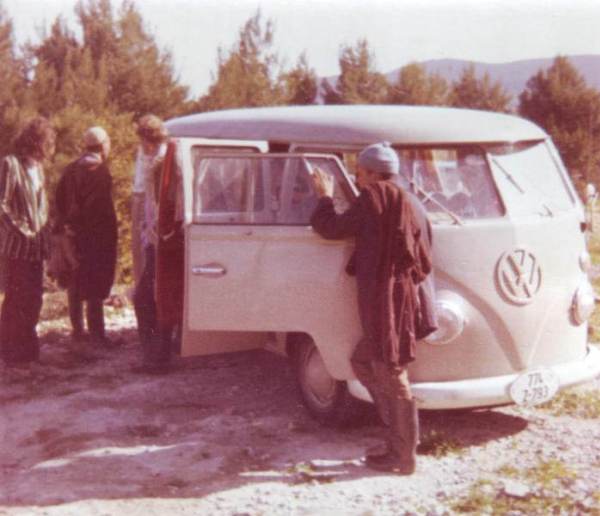
When I sat down to write, I stuck with my bullshit story about being on an extensive research trip. This time I went into greater detail in the hope of making it more believable. I explained that I was studying African social and political institutions. My work was at a critical juncture, and under the circumstances, it was not possible for me to leave. If they needed to reach me, I politely requested that they send correspondence to the American Express office in Tunis, Tunisia.
Responding to the Selective Service System always brought a brief respite. It put the ball back in their court and allowed me to stop worrying about my situation until I got the next letter.
I said goodbye to Debbie and Philip in Constantine, Algeria. We exchanged addresses, and I told them not to be surprised if they saw me on their doorstep in Canada one day. They both assured me that I would always be welcome.
From Constantine, I took a train to Tunisia, and two days later I arrived in Tunis, the capital. I found an affordable hotel room in the city center and immediately went to American Express to check if I had mail. Hopefully, I would find out where Ted was staying.
I was relieved that I did not have a response from the Selective Service System. There was a message from Ted that he had arrived in Tunis and was staying at the Hotel de la France. I headed there right away, however, when I went into the lobby, the desk clerk informed me that Ted had checked out two days earlier.
Unsure what to do next, I left the hotel and walked down the busy street. I hadn’t gone far when I spotted a man towering above everyone else and walking straight toward me. It was Ted!
We both called out, ran toward one another, embraced on the crowded sidewalk, and cried out of happiness. People stared at us like we were out of our minds. He apologized for not leaving me a note explaining that he found a better, cheaper hotel. We headed for the nearest bar where we drank cold beers, traded stories about our travels, and caught up on our friends and families.
“Traveling was like nirvana, and we took it on with gusto.”
The first thing Ted told me was that his mother had just died. After years of suffering from multiple sclerosis, she succumbed to the chronic health issues that resulted from the disease. His dad had sent an urgent message to the American Embassy to notify him. Then Ted showed me a letter my father had written to him saying that he had gone to the funeral in his place. I was proud of my dad for doing that, and I could tell that Ted really appreciated it.
News of his mom’s death was tragically sad and merciful at the same time. I admired the way Ted took it in stride, had no feelings of guilt, and was ready to soldier on.
The following day, we studied our maps and tried to determine where to go next. We agreed that we wanted to travel in Africa and decided to start by going to Libya, then to Egypt, and from there see how far down the east coast of Africa we could get.
Ted and I shared the same philosophy about traveling: stay off the beaten path and travel as cheaply as possible. It occurred to us that we were both running away from unpleasant situations. Traveling was like nirvana, and we took it on with gusto. While we were in Tunis, we waited for our Libyan visas and arranged for American Express to forward our mail to Cairo.
Westerners were not a common sight in Tunisia. With our long hair and tall frames, we got stares everywhere we went, and it was becoming increasingly uncomfortable. At times, groups of young Arab guys would point at us, laugh, and pantomime suggestively implying that we were homosexuals.
One evening, Ted and I were pleasantly surprised to see that the movie Woodstock was playing at a cinema in central Tunis. The film was in English with Arabic and French subtitles. The theater was filled with Arab men, and many of them had their arms around one another or were hanging all over each other in a nonsexual way.
The audience laughed hysterically at the strange, foreign insanity that they viewed on the screen. It was as if I had taken the brown acid that the movie warned against. I was curious how that warning had been translated into the Arabic subtitle, and I wondered if the moviegoers could possibly comprehend the concept.
The theater had left some lights on during the film, and many people were pointing and leering at us. Halfway through the movie, they formed a group around us and talked among themselves in Arabic. It got so uncomfortable that we got up and walked out.
Despite the unpleasant experience, our spirits were high as we set out from Tunis. We headed south toward Libya and tried to stay close to the Mediterranean coastline. Getting rides from locals and truckers did not prove to be difficult.

In three days, we made it from Tunis to Ben Gardane, a city not far from the Libyan frontier. As we prepared to leave Tunisia, we knew that we had some rough traveling ahead of us. Hitchhiking to Tripoli would take us across more than a hundred miles of nothing but desert.
From Ben Gardane, Ted and I took a bus directly to the Libyan border. As we went through customs, we received warnings about going across the desert without water. Everyone entering Libya was given a map that marked all the water stations along the highway to Tripoli. Travelers were also urged to carry their own water. Hot, dry, sandy gusts of wind were continuously blowing, and it was well over a hundred degrees.
“I slowly reached into my backpack and searched for my Swiss Army knife.”
Shortly after we crossed into Libya, Ted and I spotted two young Arab guys standing next to what appeared to be a brand new Volkswagen bug. They were dressed in fashionable Western jeans, polo shirts, and expensive sunglasses. Both were handsome and exuded confidence as they joked loudly with each other.
The two saw us eyeing their car and struck up a conversation. They were students returning to Tripoli and seemed interested in talking to rarely seen American tourists. Once we explained that we were also going to Tripoli, they quickly invited us to ride along. Since we didn’t have any idea how to complete this leg of our trip, Ted and I figured it was a good idea to accept the offer.
Because of the extreme heat, people rarely crossed the desert during the day, so we waited until the evening to leave. Ted and I squeezed into the backseat of their Volkswagen and headed across the desert.
Our new Arab friends, Ibrahim and Mahmoud, were quite talkative as we drove along and wanted to know the usual things that people ask. However, the longer we talked, the weirder the conversation got.
Ibrahim asked from the driver’s seat, “How long have you guys been traveling together?”
“Oh, just a couple of weeks,” I answered. “We’re long-time friends. We grew up together in California.”
“Your hair is very long,” Mahmoud said as he leered at me in a way that gave me the creeps.
“Do you have girlfriends back in America?” Ibrahim asked.
“Yes, of course we both have girlfriends,” I answered. “Don’t you guys?”
“Then why aren’t your girlfriends traveling with you?” Mahmoud inquired.
That question struck me as very odd.
“Where is this going?” I asked myself.
I glanced at Ted, and I could tell that he was thinking the exact same thing, “These guys are coming on to us!”
After there was some awkward back and forth, they spoke to each other in Arabic and started to laugh. The passenger, Mahmoud, suggested that one of us get in the front seat, and he’d move to the back. Ted and I were getting pretty nervous. We kept shooting each other anxious glances while trying to avoid the eyes of the driver in the rearview mirror.
Ted and I told them that we were happy with the seating arrangement exactly the way it was. As the conversation continued, I slowly reached into my backpack and searched for my Swiss Army knife. I seriously doubted that I could have used it as a weapon, but I felt better having it within reach.
Mahmoud kept turning around and looking at us.
Suddenly, I decided that I didn’t want to ride with these guys any longer and demanded, “Hey, stop the car! We’re getting out right here!”
Ibrahim and Mahmoud both looked back at us in surprise before starting to laugh.
Mahmoud exclaimed, “You can’t get out here! We’re in the middle of the desert!”
“That’s OK,” I replied. “Just let us off here.”
Ibrahim got serious for a moment and asked, “Don’t you know there are demons in the desert at night?”
“We don’t care about the demons!” Ted insisted. “Stop the car and let us out!”
They looked at us with utter incredulity. Gradually, Ibrahim slowed down, pulled over to the side of the road, and came to a halt. Obviously, neither believed that we would get out.
Once again, Mahmoud suggested that we change the seating arrangement. As he got out of the car, Ted and I both opened our doors, grabbed our backpacks, and ran out into the pitch-black desert.
“Thanks for the ride guys! See you in Tripoli!” we called out to them as our steps slowed to a walk.
“Yeah, watch out for the demons!” Ted added.
Ibrahim and Mahmoud didn’t say a word but just stared at us in absolute shock. As we walked into the darkness and the clutches of demons, they must have thought we had completely lost our minds.
After about a hundred yards, we came to a slight rise in the terrain where we dropped our bags and sat down on them. All that was visible in the vast desert night were the headlights on the car. For fifteen minutes, we watched and waited to see what Ibrahim and Mahmoud would do. Slowly, they began to pull away, and the lights faded into the distance.


